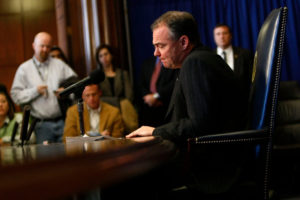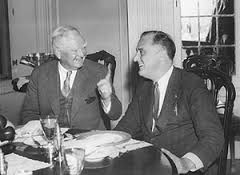Let’s revisit an issue that seems to have re-entered the debate over Donald J. Trump’s presidential candidacy.
Tax returns.
The Democrats’ vice-presidential nominee, Tim Kaine, brought the issue up again Wednesday night while accepting his party’s nomination. He asked out loud and in front of the nation why the GOP nominee won’t follow custom and release his tax returns.
He wondered — again out loud — whether Trump is hiding anything from the public whose votes he is seeking.
There’s no law requiring presidential and vice-presidential nominees to reveal their tax returns to the public. It has become a custom since the 1976 election between President Ford and former Georgia Gov. Jimmy Carter.
For four decades, candidates have released this information for public review.
Kaine and others have wondered many things about Trump’s personal financial information.
* Is he as rich as he says he is? I mean, he boasts constantly about his vast wealth.
* Is he giving sufficient amounts of his income to charity?
* Is he — as Sen. Kaine wondered — paying his “fair share of taxes”?
* Are there some foreign investments that need careful scrutiny? Hasn’t the candidate vowed to “put America first”?
* Does the real estate mogul have some connection with Russia, which has become a serious discussion point in recent days?
Trump has said he can’t release his returns because of an on-going audit. Internal Revenue Service officials say an audit does not preclude someone from releasing his or her returns.
Who’s lying here? I tend to believe the IRS version of what’s allowed and what is not.
Trump’s campaign is based in large part on his business acumen. He says he wants to do for the country what he’s done in private business. If that’s his major selling point, well, it seems to me that the public has a right to examine precisely what he has done in his business life.
The public also has the right to determine whether the income he has earned and the taxes he has paid match up the way they should — and must — for all the rest of us.
The nominee has said he’s “on your side.” Let’s see for ourselves.





